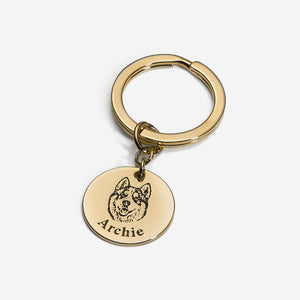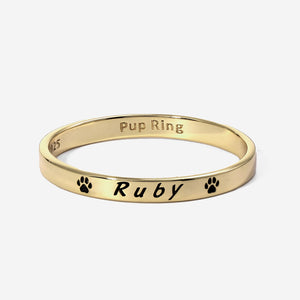How dog reads you like a book
Body Language
What do you do when you're mad? Do you throw your keys on the counter with a bit more force than usual? Maybe you scowl or your footsteps are heavier than usual. What about when you're sad? Do your shoulders slump with a big frown on your face? Maybe you don't show your emotions in exaggeration, but your dog is able to pick up on subtle cues you're giving off.
A dog’s mind has often been compared to that of a toddler. Like toddlers, they are able to recognize body language and faces, and connect them to our emotions so they can respond accordingly. The simplest way to explain most of this is that dogs are able to recognize cause and effect. This is part of why they respond so well to training!
Experiments found that dogs who could see the expressions their owners made were more able to tell how they were feeling. However, our body language involves more than our faces- we make gestures with our hands or change our posture depending on if we’re angry, anxious, relaxed, depressed, or happy. Like with faces, dogs learn to associate this body language with feelings over time as they grow older and learn to live in harmony with us.
Smells
The scent of emotions
Dogs have an incredible sense of smell. They can detect more than the treats you’ve pulled out of hiding though- they can smell how you feel! Your brain releases certain chemicals based on your emotional state, and there’s some evidence that dogs can detect these chemicals. You also release different pheromones in relation to your emotions.

Sniffing out illness
Your dog might seem to be able to tell you’re sick before you are even aware of it. You might be puzzled by this until you realize that many dogs are trained to detect specific illnesses in a variety of settings, all with their incredibly sensitive and powerful noses.
Some dogs are trained in a medical setting to detect diseases such as cancer and Parkinsons’ disease. These little furry scientists are constantly impressing us with their ability to sniff out sickness.
Other dogs are trained as service dogs to help with a huge number of illnesses and disabilities. You’re probably aware of seeing eye dogs for those who are blind, but dogs can be trained to help make life more accessible for those who experience all kinds of different obstacles in their lives. For example, some dogs are able to detect the early signs of seizures, and can alert their owner before it happens so they can find a safe place or position to be in when it occurs. Other dogs are trained to help with PTSD, diabetes, and other disabilities.
The Aroma of Motherhood
Many expectant mothers claim that their dogs were aware of the pregnancy before the mother! Just like they can smell sweat or bacteria, dogs are able to smell the hormonal changes that happen during a pregnancy. They may not necessarily understand that it means a baby is coming, but they know to be a little bit more attached to their pregnant owner, or even a little bit more protective than usual.
Sound

Not only are dogs able to tell how you feel with all of these senses, but they are able to predict how you will feel in the future about certain situations you may find yourself in. If you’ve seen a guilty dog video, you know exactly what I mean. It all comes back to their understanding of cause and effect… but what do they do with all this information?
The surprising ways they actually help
After using their senses to discern how we’re feeling, dogs are eager to do their best to help. The more attached to their owner they are, the more persistent a dog will be in trying to comfort them. In one study, dogs who were on one side of a glass wall were able to see their owner in the next room. There was a door between the rooms that was closed, but only held there by weak magnets. The dogs that were more attached to their owners investigated the door and were able to push through the door to reach the owner in distress! Scientists also found that dogs who were more attached to their owner were quicker to act, even when presented with obstacles.
Touch
If we’re feeling down, a dog is quick to cuddle up to us. Of course it feels nice, but what’s really happening to us that makes us feel so much better?

Touching and petting a dog is also a way to ground yourself. If you’re not familiar with grounding, it’s a way to help bring your mind to the present moment. The sensation of feeling their fur under your hands, or listening to their gentle breathing can help you focus on the here and now. For those who struggle with anxiety or PTSD, grounding techniques can make a huge difference when it comes to coping with and mitigating the symptoms of these mental illnesses.
Distraction

I can tell you how important this is from my own experience. The first time I ever met Cookie as a puppy, I sat down in his cage in the shelter and just cried. I had been hoping to find a dog to help me with my anxiety and depression, and I knew from the moment I saw him that he was the perfect pup for me. When I sat down with him and cried, all of my emotions came out at once. Cookie, never having met me before, also made the connection right away. He curled up into my lap, looked up at me, and started licking all the tears away. He knew exactly what I needed and he was ready to do anything he could to help me. Now, sometimes if I’m upset or even crying, Cookie likes to bring me his favorite toy. If it doesn’t work right away he’ll run off and bring me another one and start a small treasure pile of his favorite things in my lap, because if they make him happy, they should make me happy too!
Finally, if dogs are otherwise concerned about us, whether for illness or otherwise, they may become vigilant. This can be staying nearby to watch us and make sure we’re okay, or even becoming a little bit more protective of us than usual.
Some dogs are specifically trained to help owners who struggle with illnesses, whether they are mental or physical. Since dogs are already naturally inclined to help us feel better, teaching them specific ways to do so is a job they are proud to perform. This can be anything from providing stability to someone who is weak, sniffing out food that may contain ingredients someone is allergic to, or turning on the light in the middle of the night if their owner experiences nightmares. Dogs love having jobs and live for the feeling of helping their owner.
How about your dog? How does it help you or react to your emotions? Whatever the answer is, give your pup a hug today and let them know how much you appreciate your bond!







